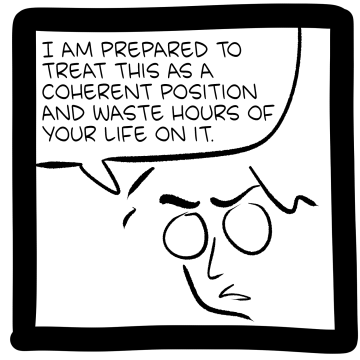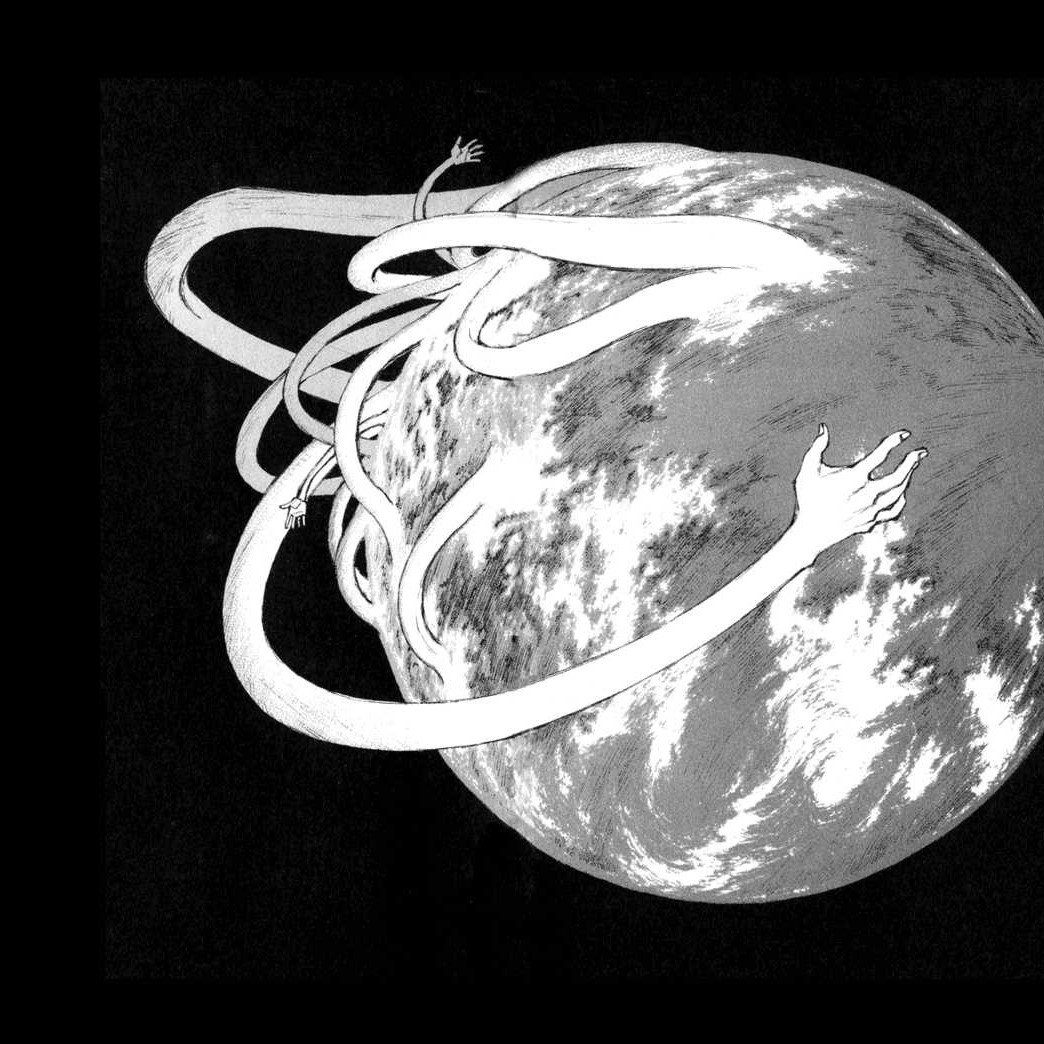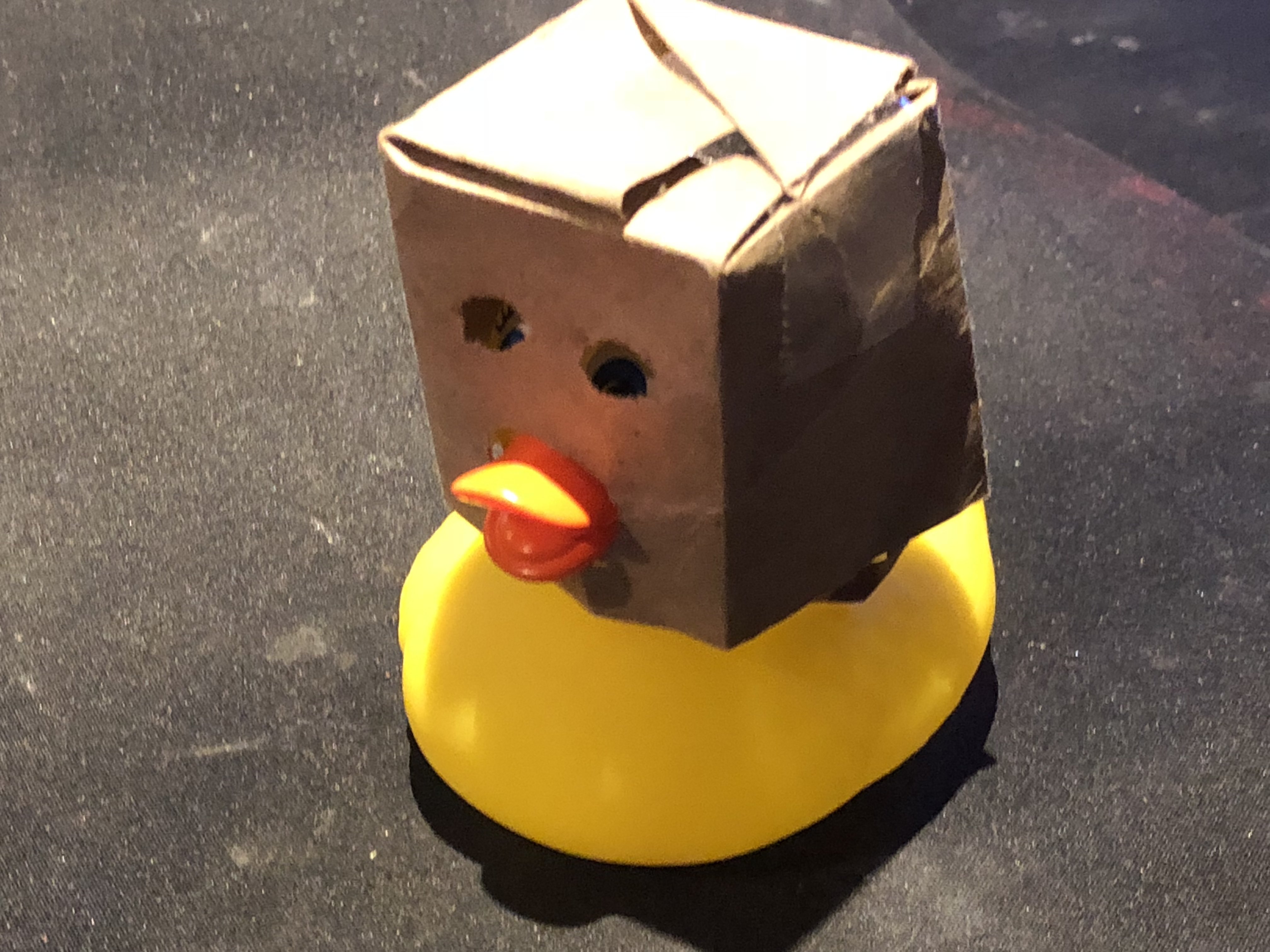Somehow, I can tolerate “jpheg” much easier than the forsaken “jif.”
Jif is where it’s at. Peanut butter and image format? Yes please
But Jif in Australia is a cleaning solution - can we have different pronunciations based on country?
No need, it’s Gif. Heathens be damned.
Y’all love diminutives, call them jiffies?
Jiffy is already an abstract measurement of time though
Fits perfectly.
Jiffy is the average length of a gif.Give me about four jiffies, I’ve just got to finish wiping my ass
deleted by creator
Sounds more than fair. We can’t agree to a person on our sounds anyway.
No. You cannot.
The creators literally referenced this early on “choosy devs choose gif” like the jiff peanut butter commercial.
this goes deeper than I thought!
Yes, and that’s stupid.
It’s not ‘Jraphical Image Format’. Gah!!!
deleted by creator
/skəba/ (sk•uh•bah), obviously.
Oh my God no one fucking cares about Steve Wilhite and his fucking speech impediment.
You seem upset.
You don’t pronounce the word for imagery as “jrafics?” How odd.

Giraffics
Stupid long horses
Do you also pronounce origin like Oregon
By that standard, the comic is right and we should say j-feg
always remember that yiff is a valid option
I don’t like the color noise, so yeah it’s fine with me.
“Jif” is the original pronunciation. It is a pun, a play on the word “jif” short for “jiffy” meaning a short amount of time, as in “I’ll send it to you in a gif”. The newer pronunciation has become popular based on the fallacious reasoning that an acronym should be pronounced the same as its constituent words, which isn’t a thing at all.
Language evolves, and both pronunciations are common enough to be considered acceptable. The only way to be wrong about how to pronounce the word is to claim one of the pronunciations is wrong.
Become popular? It’s been popular roughly for the lifespan of the format. It’s hardly language’s fault the developer wanted to make an unfunny reference to a since forgotten peanut butter slogan.
On the other hand linguistics indicate a hard g sound with the construction of the word, constituent words aside. Plenty of four letter words starting with the gi combo have a hard g, including but not limited to gift which you may notice is very similarly constructed.
Whatever else the English language may throw at us, people appreciate consistency because we can make some sense of the world. A hard g is the consistent, predictable, sensible choice for the limited availability of those virtues English offers.
Become popular? It’s been popular roughly for the lifespan of the format.
I’m gonna stop you there, because I’ve been using the format for about 30 years, and people only started using the new pronunciation in the last 10-15.
Everything you said about linguistics is entirely crap. English is not a proscriptive language. English linguistics doesn’t indicate anything at all. It is descriptive, and is anything but consistent. There are no rules about word construction or pronunciation. Words are pronounced the way they are understood, and if you are understood then you have pronounced them correctly.
You could argue that the original pronunciation is archaic, like “encyclopaedia,” but the problem there is that the word itself is like 35 years old, and there are people like me who have been using the word since there was only one acceptable pronunciation who aren’t likely to change.
people only started using the new pronunciation in the last 10-15.
As someone else pointed out already, this is untrue. While it may not have been popular in your circles, it definitely was in others. I’ve been saying it with a hard g as long as you have with a soft and I’m not the originator either.
English linguistics doesn’t indicate anything at all.
They absolutely do. That’s why you can sound out a word you’ve never seen before. You may not always be right when you do because they indicate, they don’t define.
There are no rules about word construction or pronunciation.
There are, there are just exceptions. For example, an e at the end of the word is silent. I’m certain you can give me a word where it’s not, but there are at least six in this paragraph alone where it is.
if you are understood then you have pronounced them correctly
In this logic if someone has been pronouncing a word all their life with a single pronunciation and travels to another location with a much different accent they can only now be pronouncing the word wrong.
If understanding is also the only metric then a hard g would still be preferable. Not only does a written g tend to make people lean to a hard g in my experience, but there’s more words that could be mistaken for a soft g pronunciation.
You could argue that the original pronunciation is archaic,
Could I not argue that the original pronunciation has fallen out of favor?
the word itself is like 35 years old
Is there a time requirement for pronunciations to become archaic?
since there was only one acceptable pronunciation
Which isn’t a time that existed, as we’ve established
who aren’t likely to change.
Given your stance on language this is absolutely a you problem. If the rest of us collectively decided to understand it as only with a hard g, you would not be understood and therefore be pronouncing it wrong by your own logic.
There are, there are just exceptions. For example, an e at the end of the word is silent. I’m certain you can give me a word where it’s not, but there are at least six in this paragraph alone where it is.
One of the most common words with a final “e” in that paragraph is “the” which not only has a final “e” sound, but has two different final “e” sounds depending on the context: “the end” uses a /ði/ pronunciation but “the word” uses a /ðə/ pronunciation. English is very stupid.
But, I agree with your assessment. English has rules, or at least patterns. “G” is most often hard, not soft, because “J” is available for the soft version, but there’s no alternative for the hard version. English tends to follow patterns, and “gift” has a hard g, and it (and words based on it) are the only ones that start with “gif”, so every “gif” word is hard. Because “t” (unlike “e”) can’t change the sounds before it, the pattern says that “gif” should have a hard “g”.
If it were “gir”, then there would be more debate. The word “giraffe” has a soft “g” but “girl” has a hard one, so the pattern is more muddy.
Also, people who coin words don’t get to decide how they’ll be pronounced. They can certainly try, but they’ll often lose. There are plenty of words in English borrowed from other languages that not only sound nothing like the original language, but that sound nothing like they’d sound if they were English words. For example, “lingerie”. It’s a French word, but the English pronunciation sounds nothing like a French word. In fact, if someone just sounded out the word as if it were an English word, they’d probably get much closer to the French pronunciation than the awful “lawn-je-ray” which is the current accepted English pronunciation (though, they’d probably assume a hard “g” sound).
In this case, it’s too bad that Steve Wilhite didn’t have a background in linguistics or he would have realized that people would see “gif” and assume a hard “g”. It was a losing fight from the start because he either didn’t understand the assumptions people would have when they saw those letters, or he thought that somehow he could successfully fight the tide all by himself.
Jift.
It’s pronounced like yiff. I have spoken.
Great, now search for communities with ‘yiff’ here on lemmy.
That’s a fantastic idea ;P
Still kicking myself for joining Pawb and not Yiffit <.<
havent been on there but from a quick glance looks to be a lively discussion on our beloved moving image standard. shameless plug: we also have a lovely knot making community.
If in your group chat, people start sending yiffs it becomes a yiff party.
Helen is wearing socks with sandals. Helen don’t give a single phuck.
Why use C and K in socks when they are pronounced the same?
New spelling: Sokks
Nah, gotta go with soks - can’t have that redundant k in there!
Socc is the correct spelling now, because its “soccer” not Sokker (or Soker).
This is a hill I am willing to die on.
Language evolves over time to become shortened for convenience.
Therefore sox is now the correct spelling. You all are using archaic spelling variations. Sox is always plural. I’m sure this will cause no confusion.
On a less anarchist note, spelling wasn’t standardized until the early 1900s.
So up until then, sox, soccs, socs, sokks, soks, and socks were all valid ways to refer to foot panties.
Foot panties!! This is now canon, someone call Merriam-Webster!
Foot condom
Yup. Don’t want to risk a third K getting in there…
It’s obviously “sox”.
Sahks
Booo booo
Of for those from Boston: Sahks
It’s spelled “puck”
It’s pronounced Gif, with a soft G as in Graphics.
I don’t give a fuck what the idiot creator thinks it should be pronounced as, I’ll die on this hill with my honor intact, surrounded by the corpses of everyone who thinks Jif is referring to anything but peanut butter.
You say soft g when you mean hard g. Hard g’s include GOAT, game, dragon, and gangster. And gif.
What do you mean? It’s not said jraphics card?
That’s because it’s a hard g.
That’s my reasoning as well. Jif is for peanut butter, why make things extra confusing?
It’s pronounced GIF (sounding out each letter), like in that ‘If Google Was A Guy’ CollegeHumor video. Just so that it doesn’t annoy or antagonise anyone for a meaningless purpose. Everyone wins.
Or, maybe both pronouncers (the “jiff” gang and the “giff” crowd) will team up against me for saying that. At least we’ll have harmony for most people if that’s the case, and I’ll be a sacrifice to keep the peace.
GeeEyeFff?
The peanut butter is exactly the reason he picked that pronunciation. Choosy developers choose gif.
It’s pronounced jif because jraphics are his phavorite.
But other words like SCUBA and NASA are not pronounced like the words they derive from, so this can’t be an all-encompassing rule.
ETA: Or maybe I’ve been pronouncing SCUBA and NASA wrong
Jif is a cleaning product
Coming from the jif camp myself, I’d just like to point out it’s jay-phej.

Ur mom is jay
why do I pronounce ‘JIF’ as ‘yeif’
As someone in the jif camp I would like to publicly denounce this abomination and say it does not represent us soft g advocates in any way.
GIF is pronounced GIF not because the G stands for Graphical, but because it is its essence. It is what is calls out to be… Called.
And because it’s not peanut butter.
And for the same reason, JPEG is pronounced JFEG not because the P stands for Photographic, but because that is the expression of its true essence.
I just didn’t know it before today.
Justice for JΦEG!
Also, “gi” in english makes the hard g sound very often, like in gift, or give, or giddy. You need to do some real mental gymnastics to justify it as a j sound
The giant ginger biologist originally apologized for being allergic to ginseng.
I wear a gi in martial arts
I’m going to call it “geef” from now on!
deleted by creator
Not sure if the use of the word “gymnastics” is intentional here
I’m not taking about gy or ge, I’m talking about gi
What about gin?
Sure, I’ll have some.
Giraffe, ginger, ginseng, gist
giant, gigantic, ginger, gist, gin, giraffe, gibberish, gingivitis, giblet, giro, giron, gingal, gipsy / gitano, gingili, gigot, girasole, giaour, …
logic, tragic, agile, agism/aging, legit, sigil, magi, magic, argil, algid, aegis, vagile, algin, digit, legible, legislature, surgical, intellegible, …
looks like a lot of palatal affricates to me dawg idk, i think you’re the one doing mental gymnastics trying to justify it not being pronounced the way the creator specified. “gif” the way you ask for just sounds weird
Say the word “gift”. Don’t pronounce the t. Wow. That simple.
Say the word “giraffe”. Don’t pronounce the ra. Wow. That simple.
You can tell it’s a soft G from the way it is! How neat is that?
Gif is obviously pronounced like the g’s in ‘gorgeous’
Egregious!
Honestly have never understood the gif debate. Words sometimes have multiple pronunciations. They’re both fine.
How dare you not pick a side. Your neutrality sickens me.
What makes a man turn neutral? Lust for gold? Power? Or were you just born with a heart full of neutrality?
Bunkers. And ski slopes…
Ah, bunkers. You see, bunkers have a preset kill limit. Knowing their weakness, I will send wave after wave of my own men at them, until they reach their limit and shutdown.
All I know is my gut says “maybe”.
Compassion or exhaustion.
Tell my wife I said “hello”
When I die, please give Kevin my regards.
Pick a side, you monster, you.
it’s an acronym (as opposed to initialisms, which are not pronounced as a single word). There is no rule on pronunciation.
scuba nato laser
We don’t do this for any other acronym. There is no rule about the pronunciation. It’s arbitrary. The creator chose “jif”, so that’s the “canonical” one.
jifts for Christmas
Yes, the time when you eat gingerbread and drink ginormous amounts of gin, if you get the gist
Let’s hang everybody who claims that gif is pronounced jiff, but not because (as you seem to imply) that’s not how “gi” is read in English because nothing is read always like anything ever in English
All English words that start “gif-” (and for that matter “giv-”) have a hard g.
While English is well known for a mess of exceptions, GIF has, or had, no precedent for soft G, so you’ll forgive people for thinking that the choice of soft G on GIF is a little unusual and being rubbed the wrong way by it.
All words that start with “gif” have a hard g because there is only one: gift. If “gift” had a soft g, then all the words that start with “gif-“ would have a soft g. If it only has one case of application it’s an accident, not a rule.
And again, saying this as somebody who agrees on “gif” having a hard g despite the delirious claims of its inventor.
deleted by creator
do I look like I know what a “JphEg” is?
I just want a picture of a got dang hot dog
GIF comes from the Old English word “gif,” pronounced with a “y” sound.
So it’s yif.
kill it with fire
I’m more of a “jaif” person.
I hate this.
No, it comes from the name Graphic Interchange Format.
So if we’re going to with jfeg, then we’re also going with gif.
Git is now pronounced Jit.
JIT, as in the compiler architecture, is now pronounced Git.
If you have to spell it wrong to show how you pronounce it that should be a sighn
Now that I think about it, that’s true of more words than not, isn’t it?
I don’t think so.
I think that words have meaning. And the meaning can be true, but pronunciation is not part of the true part. It is only the color of the arrow pointing at truth.
I pronounce oil differently than my cousin in Texas, and I pronounce car differently than my uncle in New Jersey. And to use pre-Modern English (~1500) era spelling ideas we would spell those words differently and probably use different alphabets. And spelling became a standard thing in English around 1750 when Johnson’s dictionary became so celebrated and a primary reference.
So there is slippage in spelling and pronunciation.
But I’m not sure.
giph
deleted by creator
Guys… guys… can we all just agree that it’s pronounced gif and not gif?
no you fuckwad it’s pronounced gif
IDK, I always say gif, and people seem to understand what I’m saying.
It’s pronounced gif and gif.
nope. only gif is correct.
The J is pronounced like the J in Jesus (Spanish pronunciation)
👋 feg
no need to be homophobic
Did not intend. Apologies

































